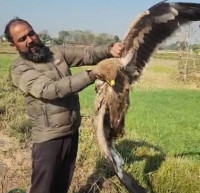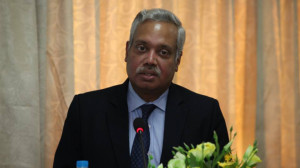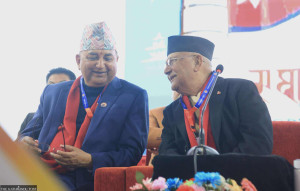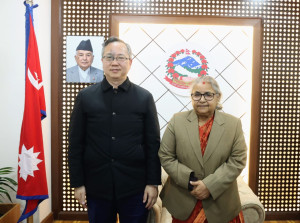National
Attack on Congress leader and mayor’s outburst alarm traditional parties
Public frustration high due to lack of delivery, experts say.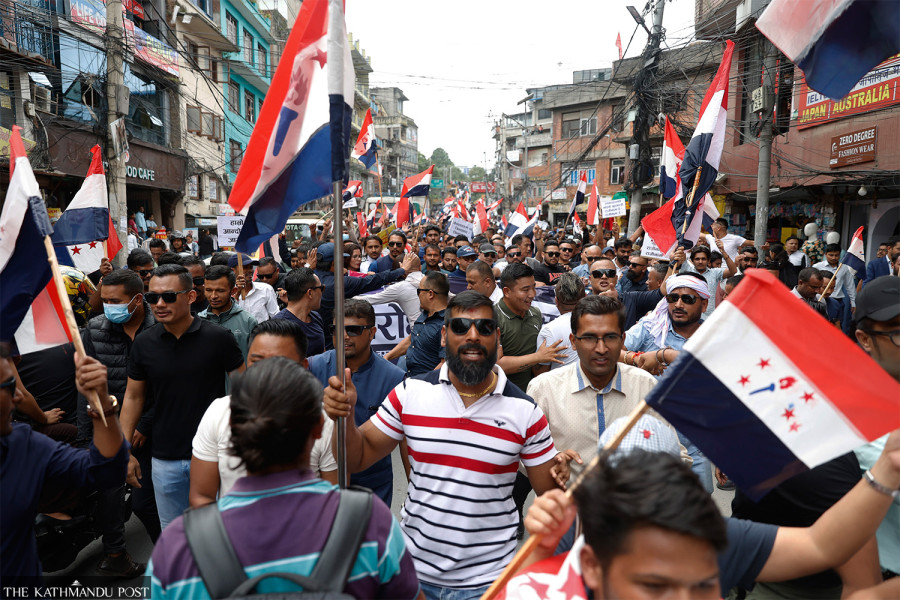
Nishan Khatiwada
Two cases this week have sparked a serious debate.
A man armed with a khukuri who styled himself as a pro-monarchy and anti-MCC activist attacked Nepali Congress Joint General Secretary Mahendra Yadav at Bhrikutimandap in Kathmandu on September 6.
The assailant, who the police have identified as Shyam Sapkota, 47, from Nuwakot district attacked Yadav with the traditional weapon as he was exiting the premises of the Reporters’ Club.
Similarly this week, Kathmandu Mayor Balendra Shah, taking to his official Facebook page, posted, 'It is okay for today, but if any vehicle of the metropolitan office is stopped by traffic police in future, I will set Singha Durbar ablaze. Mind it, thief government!'
Both the ruling and opposition parties have condemned the attack on Congress leader Yadav and lambasted Shah for his incendiary remarks.
These two incidents seem to have frightened leaders of the traditional political parties which was evident at the meeting of the House of Representatives on Thursday. Congress General Secretary Gagan Thapa raised the issue in Parliament and demanded that the government seriously investigate the incidents.
He also referred to Mayor Shah’s status. “Some have issued a threat to set fire, some attack leaders with khukuri, can we venture out alone now?”
Lawmakers from both the ruling as well as opposition parties came together to denounce the cases.
Similarly, CPN-UML whip Mahesh Bartaula, airing his views in the lower house meeting, demanded that the government take responsibility for investigating the attack against Yadav.
“UML condemns the attack on the Congress joint general secretary. The prime minister should answer about the incident. It is a situation where a lawmaker is unsafe in the middle of the capital city Kathmandu. The government should take it seriously and give answers,” said Bartaula.
After listening to the members of both the ruling and opposition parties, Speaker Dev Raj Ghimire issued a ruling, asking the government to inform the parliament about the incident of attack on the Congress leader.
On Friday, Nepal Tarun Dal, the youth wing of Yadav’s party Nepali Congress, took out a rally demanding action against the assailants. They chanted slogans against Home Minister Narayan Kaji Shrestha for failing to maintain the law and order saying that people were being attacked in the capital city in broad daylight.
Over the years, leaders mainly from major traditional political parties have become targets of angry youths both on social media and other public platforms. Several leaders, including the chiefs of the big parties, have even been physically attacked as well. In March this year, police personnel were seen trying to cover the mouths of some youths who were protesting against Prime Minister Pushpa Kamal Dahal. The young protesters seemed displeased with the high interest rates the banks and financial institutions have been charging of late. In no time, the video of police personnel trying to gag the protesters went viral, courting criticism from all sections of society. The issue was even debated in the National Assembly.
Netizens have been supporting such assaults, citing that it is the reflection of public frustration towards the failure of the big political parties’ delivery during their decades-long rule.
A political analyst Pitambar Bhandari agreed that growing public frustration and disenchantment towards the big old political parties have reflected in some incidents, more so, following the last general and local elections. “There is a perception in the general public that big parties have been responsible for the mismanagement and poor situation of the country.”
Bhandari added that activities such as attacking the leaders, and threats to set the Singha Durbar ablaze have appeared as new threats to national security, promoting anarchy in society. “The disenchantment has also been fueled by the local government chiefs and opposition lawmakers who themselves are the authority. This has also shadowed some good initiatives taken by the authorities at different levels of the government, leading to more public frustration. This is dangerous if it isn’t addressed aptly and on time.”
Observers say elections are the best platforms to express dissatisfaction and reject politicians who have misused the resources and failed to deliver.
The last elections have also hinted at the growing public frustration.
The newly-emerged Rastriya Swatantra Party (RSP) stunned the old parties in the recent by-elections, winning two of the three constituencies on offer.
RSP’s performance in last November’s elections surprised many. In its first attempt at parliamentary politics, it won 21 seats to emerge as the fourth-largest party in the House of Representatives. Similarly, the CK Raut-led Janamat Party, also contesting its maiden parliamentary election, bagged six seats and became a national party.
Another political analyst Chandra Dev Bhatta said that elections are democratic means to change governments and leaders. “The public can elect efficient and right representatives through elections.”
Bhatta added: “The Constitution can be a tool to change the system and while elections can bring about change in leadership. But this is not happening effectively in Nepal.”




 8.12°C Kathmandu
8.12°C Kathmandu

